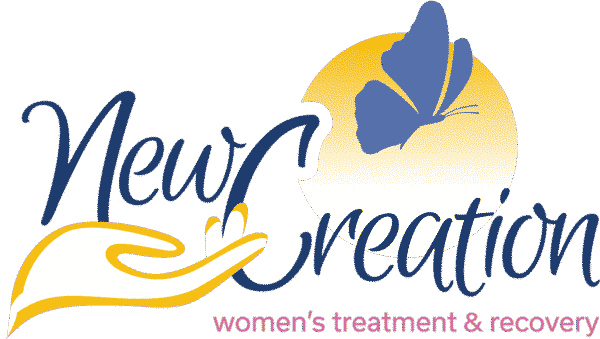Many people experience relapse and other challenges during recovery from substance use disorder (SUD). According to Springer Nature, approximately 60% of people will experience some form of relapse, and “while some people do achieve lasting change with one serious attempt, for many people repeated attempts are needed for success.” Finding healthy ways to move forward after a relapse helps people maintain their progress during treatment. New Creation Recovery understands the importance of helping clients find ways to focus on the journey of recovery after a relapse. The care team provides support and guidance to help individuals heal and grow.
Focus on the Journey of Building a Healthier Future
Building a healthier future starts by accepting the need for change and finding healthy ways to cope with stressors. For many people in recovery, stress is the leading cause of relapse. The body often associates stress responses with past substance abuse. Cravings, intrusive thoughts, and other symptoms of SUD may increase temporarily when people experience a significant stressor. Treatment helps people develop the skills and tools to build a healthier future, recover from relapse, and manage stress.
New Creation Recovery encourages clients to focus on moving forward in their recovery journey by doing the following:
- Offering practical suggestions and advice for reducing the risk of relapse
- Uplifting clients and helping them heal from the effects of relapse
- Teaching clients new ways to address symptoms of SUD
- Treating clients with nonjudgmental understanding
The care team at New Creation Recovery reminds clients relapse is a symptom of the disease and not a sign they are “wrong” or “bad.” Choosing to reframe relapse recovery into a learning experience and not a moral failure often helps people feel more confident in their ability to abstain long-term. After a relapse, people use self-forgiveness and acceptance to move forward in their recovery.
Avoiding a Shame Spiral
People often feel ashamed after a relapse, and some may spiral into unhealthy thought patterns and behaviors by focusing on the shame instead of finding positive ways to move forward. The care team at New Creation Recovery offers support, guidance, and inspiration for finding a path forward after a relapse.
A few of the most common reasons people feel shame after a relapse include:
- A perceived lack of moral character or inner strength
- Feeling they let down a loved one
- Not achieving a recovery goal
- Expectation of judgment from others
Shame is a normal response to some situations. However, when shame becomes part of a person’s self-identity, it causes emotional harm. Relapsing is a challenging experience. Many people have complex feelings about themselves, their condition, and treatment after experiencing a relapse. New Creation Recovery is a Christian-based drug rehab for women and men with SUD. The clinical team uses compassion and empathy to help clients grow and avoid focusing on negative thoughts or feelings after a relapse.
How Does Focus on the Journey Reduce the Risk of Future Relapse?
People often get distracted with thoughts and feelings that don’t help them heal from their condition. For example, after a relapse, someone may feel worthless, helpless, ashamed, or uncertain about what to do next. Relapse is a symptom of a medical condition and not an indication someone cannot heal from their experiences. People can avoid negative self-talk and unhelpful emotions by acknowledging the relapse and refocusing on treating the disease. Christian recovery programs help people experiencing addiction find a healthy way to manage symptoms after a relapse.
Self-Forgiveness and Building Resilience
Resilience is a crucial trait people develop and improve during treatment for SUD. Clients practice resilience and other helpful traits by actively engaging with peers and their care team.
Resilience reduces the risk of future relapse by doing the following:
- Improving emotion and mood regulation
- Helping people develop and maintain a positive mindset
- Teaching people to overcome adversity
Practicing self-forgiveness and building resilience reduces the risk of future relapse. According to Psychology of Religion and Spirituality, “Cultivating forgiveness toward one’s self is hypothesized to resolve feelings of guilt, shame, and self-condemnation that may cause relapse.” By using positive self-talk and focusing on the future, people can heal more effectively from relapse and other challenges in early recovery.
How Does New Creation Recovery Help Clients Focus on the Journey?
Individuals benefit from participating in structured care after a relapse. Some of the services and programs offered by New Creation Recovery include:
- Outpatient rehab
- Individual and group therapy
- Trauma treatment
- Alternative holistic therapies
- Relapse prevention
- Psychoeducation
New Creation Recovery is a safe space where people learn to heal, grow, and build a healthy self-image. Recovering from a relapse or other challenges is more manageable when people understand the symptoms are not a reflection of their worth. Choosing to continue making positive changes helps individuals focus on their recovery journey after a relapse. The care team provides tailored treatment plans to guide clients through the process of healing from substance abuse.
Relapse is a part of recovery for many with substance use disorder. However, often, people get stuck in a spiral of feeling guilty or ashamed of their relapse instead of returning their focus to the journey of recovery. Finding motivation to continue making progress in treatment is challenging, and most people benefit from relying on their care team and support system to help them refocus on the importance of healing and personal growth. New Creation Recovery encourages clients to practice self-forgiveness and to give themselves grace after a relapse. The symptoms of SUD don’t define a person’s recovery. The care team collaborates with clients to help them find healthy ways to move forward. To learn more, call (877) 868-5730.



